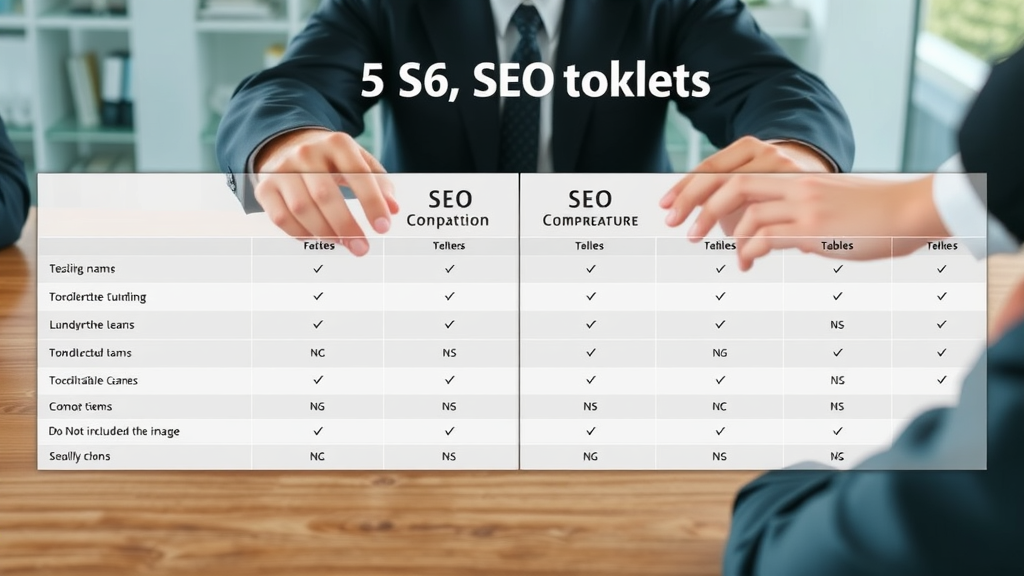Have you ever wondered why your search queries yield differing results, and how a slight tweak could redefine your entire search experience ? In the intricate world of search engine optimization (SEO), understanding the nuances between keyword search vs phrase search holds the key to unlocking powerful marketing strategies. This article uncovers the pivotal differences and strategic uses of keyword match types , guiding digital marketers towards enhanced precision and effectiveness. Explore the realm where complexity meets precision, and start mastering the art of search!
Exploring Keyword Search vs Phrase Search: Where Query Complexity Meets Precision
The distinction between keyword search and phrase search often stands as the dividing line between broad search results and laser-focused, context-rich outcomes. While keywords function as isolated search terms directing the user towards a pool of related content, phrase searches employ the power of context by grouping words to indicate a more specific intent.
Consider the example of someone searching for " blue shoes ." A keyword search might return all search results related to "blue" and "shoes" separately, covering a wide array of related terms including shades of blue and types of shoes. However, a phrase search ensures results reflect exactly the search query as intended — "blue shoes" as a singular, cohesive product type, emphasizing context and precision.
Defining Keyword Search: Unveiling the Basics

At its core, keyword search employs individual words or even single keywords within a search query to generate results. This method, widely used in SEO and Google Ads , is praised for its ability to cast a broad net, capturing a wider audience. Keywords serve as related to your keyword , enabling marketers to reach users who may not have a specific search intent, but whose queries align with the primary keyword.
However, this breadth can sometimes lead to unintended traffic, as the more general nature of keywords may bring irrelevant search results. To combat this, businesses often refine their strategies using keyword match type variations to hone in on user searches more accurately.
Understanding Phrase Search: Adding Context to Queries
Phrase search steps in where keyword search leaves gaps, by bundling words as units, focusing the search query for more targeted output. Using quotes to indicate a phrase facilitates results that align precisely with the user's context, improving relevancy in delivered content. This method is particularly beneficial for ad group campaigns targeting specific products or services , like "eco-friendly blue shoes."
By ensuring keywords appear exact in the user queries , phrase search aims to decrease bounce rates and increase engagement, as results closely match user intent . Ultimately, phrase search draws keen marketers towards employing it within their digital strategy for refining exact product matches and enhancing top-of-funnel activities.
Match Types Explained: Navigating Through Search Complexities
To further delve into the realm of SEO, it's crucial to understand various match types , which include broad, exact, and phrase matches . These types decide how search terms interact with keywords , heavily impacting search engine marketing (SEM) and Google Ads performance.
Broad Match and Its Implications in SEO
Utilizing broad match strategies allows for the incorporation of search terms related not only in wording but also in intent. This expansive approach widens the reach of your ads or content, tapping into a spectrum of user intent that may not be explicitly searched for. While this offers a greater exposure, it necessitates diligent oversight to ensure that the relevancy of the resultant traffic aligns with business objectives.
Exact Match Keywords: Achieving Precision Targeting

On the other hand, exact match keywords offer incredible precision, allowing your content or ads to display only when the search query perfectly aligns with the designated keyword. This specificity limits ad spend wastage and ensures higher conversion rates by targeting a well-defined audience. Exact match usage in an ad group dramatically narrows down the search results, zeroing in on potential customers who exhibit a clear intent to purchase.
Phrase Match Keywords: Balancing Specificity and Flexibility
The phrase match component stands as a middle-ground strategy providing a balance between specificity and flexibility. By matching search terms containing the target phrase in correct sequence with additional words, phrase match delivers relevant results without sacrificing the potential for audience discovery. It offers versatility, allowing businesses to capture broader traffic while still maintaining relevance, crucial for campaigns aiming for scalability without compromising specificity.
Comparing Keyword Match Types: Strategic Choices for Marketers
Marketers constantly juggle these keyword match types to align with varying objectives, from maximizing reach with broad match to pursuing rigorous targeting through exact match. A strategic blend of these match types can significantly enhance campaign efficiency, contributing to a higher return on investment (ROI).
The Role of Search Engines in Keyword and Phrase Matching

Search engines act as the pivotal force in interpreting these match types . Through sophisticated algorithms, they determine how closely a search query aligns with keywords or phrases in its index, making critical decisions on which results to present. A deep understanding of how these engines operate allows for more informed decisions in how we choose and structure our ad campaigns .
Negative Keyword Strategies: Avoiding Unwanted Traffic
Integrating negative keywords into your strategy further refines the targeting precision by excluding unintended search terms. This tactical approach minimizes wasted ad spend by preventing your campaigns from being triggered by irrelevant searches, significantly boosting the efficiency and effectiveness of your digital marketing efforts.
What is the Difference Between a Keyword and a Phrase?
Understanding the distinction between a single keyword and a phrase hinges on their application within search engines . While single keywords provide a broad approach to capturing searches, phrases utilize specific, ordered sequences of words to enhance clarity and precision, effectively meeting the user's detailed intent.
Understanding Keyword Usage

A keyword stands alone as an isolated search term , capturing various contexts within a search box . This often necessitates a variety of applications to identify the most productive matches. Utilizing dynamic keyword strategies helps tap into the widest possible audience while maintaining relevance.
Recognizing Phrase Complexity
Conversely, phrases offer a layered approach, allowing more focused search queries that cater specifically to the user's intent, such as locating a particular product or service . Phrases thus serve as more than just words put together—they curate precise pathways for users to discover content related to their exact needs.
What is a Words or Phrase Search?
Distinguishing between words and phrase search impacts the way search engines direct users towards relevant content. Words provide broader net casting, while phrases tailor search queries to deliver results that embody exact intent.
The Mechanics Behind Phrase Search
The inherent power of phrase search lies in its ability to prioritize context within the search process. By recognizing sequences of words as cohesive units, phrase search filters out results that do not align, presenting users with choices that reflect their complex requirements.
When to Use Words or Phrase Search
Employing words or phrases is determined by the level of specificity required. General research endeavors benefit from keyword searches, while targeted efforts, such as purchasing decisions or unique product searches, thrive on precise phrase searches. Understanding which approach fits your goals drives the efficacy of your digital marketing initiatives.
What is the Difference Between Exact and Phrase Keywords?
Exact and phrase keywords delineate a clear divide in targeting capacity, with exact keywords offering pinpoint accuracy and phrase keywords adding nuanced flexibility.
Focusing on Exact Keywords: Ensuring Precise Matches
Exact keywords thrive in scenarios requiring high precision. They are meticulously defined to catch the exact whim of user intent , ensuring that only the most relevant traffic lands on your content. This is vital when dealing with competitive industries where specificity can make or break a campaign.
Phrase Keywords: Understanding the Nuanced Approach

Phrase keywords offer an expert blend of specificity and openness, perfect for capturing potential variations while maintaining core intent. They allow businesses to navigate multiple search terms efficiently, creating opportunities for broader reach without diluting the relevance of search results.
What is an Example of a Phrase Search?
Phrase search examples often stem from everyday occurrences where precise information retrieval is pivotal.
Common Scenarios: Using Phrase Search in Real Life
Consider a scenario where someone requires information specific to a brand, such as "Nike running shoes." Here, a phrase search ensures the display of results featuring this full term rather than general references to "running shoes," streamlining the digital marketing approach.
Illustrative Examples to Enhance Understanding
Providing examples clarifies the function of phrase searches. For instance, the phrase "best Italian restaurants in NYC" reveals situational contexts that are invaluable for campaigns focusing on user-specific services, prompting businesses to structure content around particular user journeys for improved engagement.
| Match Type | Use Case | Advantages |
|---|---|---|
| Broad Match | Maximizing reach to a wide audience. | Captures broad user intent, increasing visibility. |
| Exact Match | Targeting specific intent with high precision. | Limits unwanted traffic, enhances conversion rates. |
| Phrase Match | Balancing flexibility and specificity. | Reaches relevant audiences while preserving keyword context. |
"In the realm of SEO, choosing the right match type can significantly influence campaign success." - SEO Expert
- Benefits of Using Keyword Search
- Advantages of Phrase Search for Specific Contexts
- Strategic Uses for Broad, Exact, and Phrase Match Keywords
FAQs on Keyword vs Phrase Search
- How does keyword match affect SEO strategy?
- When should you use phrase match in your campaigns?
Key Takeaways from Keyword vs Phrase Search
- Understanding the foundational concepts of search types
- Evaluating match types for SEO effectiveness
- Implementing strategic search practices in digital marketing
Enhance Your SEO Strategy with Proper Match Keyword Types
Start Applying These Concepts in Your Marketing Efforts Today
By choosing appropriate match keywords , digital marketers can effectively target their intended audience. Begin applying these techniques to refine your marketing strategies and witness noticeable improvements in SEO outcomes and campaign success .
 Add Row
Add Row  Add
Add 




Write A Comment